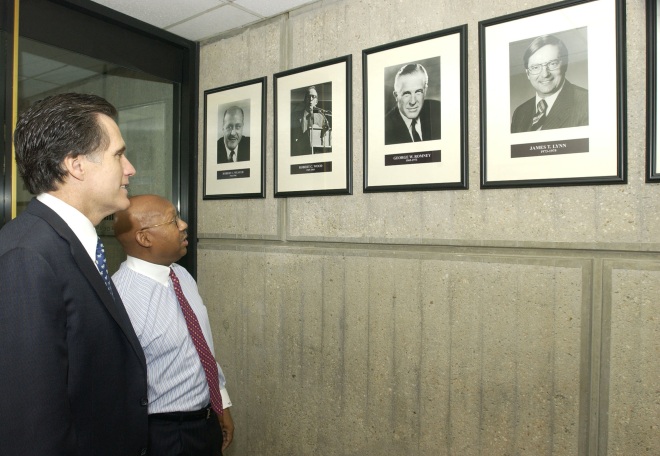Chrystia Freeland asks today’s CEOs to take a lesson from Mark Mizruchi’s book The Fracturing of the American Corporate Elite, which tells the story of the Committee for Economic Development, a group of “engaged, moderate businessman from across the country” formed in 1942:
In order to maintain the system from which their privileges derived, they believed it would be necessary to attend to the welfare of the broader population. This meant supporting a high level of employment, the alleviation of poverty, the amelioration of racial disadvantage, and the provision of sufficient purchasing power in the population to consume the goods that American business was so proficient at producing.
This was the creed of the nation’s most influential corporate leaders, a group that supplied Cabinet secretaries to both Republican and Democratic Administrations. Today, with so much of the national economic conversation consumed by the budget deficit and which middle-class entitlements need to be cut to reduce it, that platform would place you on the left wing of the Democratic Party, and no leading business organization would advocate it.
Christopher Flavelle, meanwhile, is bothered by today’s chief executives “squandering their influence” by promoting partisan ideas rather than bridging the gaps:
The Business Roundtable, an association of chief executive officers of the largest U.S. companies, held a lunch for reporters this week on what’s wrong with the economy. A better question might be what’s wrong with the country’s chief executives.
In the face of persistently high unemployment and slow economic growth, the two executives hosting the lunch (the Roundtable insisted they not be identified) didn’t talk about this year’s government spending cuts, the best course for monetary policy or even reducing regulations. Instead, they talked about their plan to cut Social Security and Medicare, which they called a drag on economic growth. …
If business leaders really wanted to shore up Medicare, they could throw their weight behind cost-cutting mechanisms that are already in law but face enormous political opposition, such as the board of experts charged with limiting the rise in Medicare spending to just 1 percent more than gross domestic product growth. If they really wanted to ensure Social Security’s solvency, they could support eliminating the cap on income subject to the Social Security tax, which now stands at $113,700. That the Roundtable chose instead to push ideas that even Republicans seem to have quietly shelved says more about its members than the state of debate. It doesn’t matter whether these proposals are a heartfelt but unpromising attempt to fix the economy, or simply the Roundtable providing a soapbox for its members’ views about the role of government. The effect is the same: It isn’t likely to accomplish much.
(Photo: American politician (and future Republican Party nominee for the US Presidency) Mitt Romney looks at a portrait of his father, former Michigan Governer and US Secretary of Housing and Urban Development (HUD) George Romney, with then-incumbant HUD Secretary Alphonso Jackson, in Washington DC on May 3, 2004. By PhotoQuest/Getty Images)
